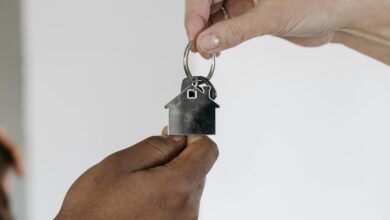The Best Tips for First-Time Renters: A Comprehensive Guide

Renting your first home or apartment is an exciting milestone, but it can also feel overwhelming if you’re unfamiliar with the process. From finding the right place to understanding lease agreements, there’s a lot to consider. To help you navigate this new chapter, we’ve compiled a list of the best tips for first-time renters. Follow these guidelines to ensure a smooth and stress-free renting experience.
1. Set a Realistic Budget
Before you start apartment hunting, determine how much you can afford to spend on rent each month. A general rule of thumb is that your rent should not exceed 30% of your monthly income . This ensures you have enough left over for utilities, groceries, savings, and other expenses.
Additional Costs to Consider
- Security Deposit: Typically one or two months’ rent.
- Application Fees: Often non-refundable and used for background checks.
- Utilities: Electricity, water, gas, internet, and trash removal.
- Renter’s Insurance: Protects your belongings and provides liability coverage.
- Moving Expenses: Truck rentals, movers, or packing supplies.
2. Research Neighborhoods
The location of your rental is just as important as the property itself. Consider factors like safety, convenience, and lifestyle when choosing a neighborhood.
Questions to Ask Yourself
- Is the area safe? (Check crime rates online.)
- How close is it to work, school, public transportation, and grocery stores?
- Are there amenities nearby, such as parks, gyms, or restaurants?
- What is the noise level like? (Visit at different times of day to assess.)
Use tools like Google Maps, neighborhood review websites, and local social media groups to gather insights.
3. Start Your Search Early
Good rentals often get snapped up quickly, so begin your search well in advance of your desired move-in date. Popular areas may require you to start looking 1–2 months ahead.
Where to Look
- Online platforms like Zillow, Apartments.com, or Craigslist.
- Local classifieds or community bulletin boards.
- Real estate agents who specialize in rentals.
- Social media groups or forums for your city/neighborhood.
4. Read the Lease Agreement Carefully
The lease agreement is a legally binding contract, so read it thoroughly before signing. Pay attention to key details, including:
- Lease Term: How long are you committing to stay? (Month-to-month vs. annual leases)
- Rent Amount and Due Date: Ensure you understand the payment schedule.
- Security Deposit and Fees: Know what’s refundable and under what conditions.
- Maintenance Responsibilities: Who handles repairs? What’s the process for reporting issues?
- Pet Policies: If you have pets, confirm they’re allowed and check for additional fees.
- Termination Clauses: Understand the penalties for breaking the lease early.
If anything is unclear, ask questions or consult a lawyer before signing.
5. Inspect the Property Thoroughly
Before moving in, conduct a detailed walkthrough of the property to document its condition. This will protect you from being charged for pre-existing damages when you move out.
What to Check
- Walls, floors, and ceilings for cracks, stains, or holes.
- Appliances (oven, fridge, dishwasher) to ensure they’re working properly.
- Plumbing fixtures (faucets, toilets, showers) for leaks or clogs.
- Windows and doors for proper sealing and functionality.
- HVAC systems (heating and cooling) to confirm they operate efficiently.
Take photos or videos during the inspection and share them with the landlord for reference.
6. Get Renter’s Insurance
Renter’s insurance is affordable and provides essential protection for your personal belongings and liability. It covers losses due to theft, fire, water damage, and more. Many landlords require proof of renter’s insurance before allowing tenants to move in.
What It Covers
- Personal property (furniture, electronics, clothing).
- Liability for accidents that occur in the rental unit.
- Additional living expenses if the property becomes uninhabitable.
Compare quotes from multiple providers to find the best coverage at the lowest cost.
7. Build a Good Relationship with Your Landlord
A positive relationship with your landlord can make your renting experience smoother. Communicate openly, pay rent on time, and report maintenance issues promptly. Being respectful and responsible increases the likelihood that your landlord will be accommodating if problems arise.
Tips for Effective Communication
- Submit repair requests in writing (email or text) for documentation.
- Be polite and professional in all interactions.
- Address concerns calmly and constructively.
8. Prioritize Safety and Security
Your safety should always come first. Take steps to ensure your rental is secure and that you feel comfortable in your new space.
Safety Measures
- Change the locks when you move in (if allowed by the lease).
- Install a peephole or doorbell camera for added security.
- Use strong passwords for Wi-Fi networks and smart devices.
- Familiarize yourself with emergency exits and procedures.
Additionally, introduce yourself to neighbors—they can be valuable allies in case of emergencies.
9. Avoid Overextending Yourself
While it’s tempting to stretch your budget for a dream apartment, remember that financial stability is crucial. Don’t commit to a rental that leaves you struggling to cover other necessities. Opt for a smaller or less luxurious space if it means maintaining a healthy financial cushion.
10. Plan for Moving Day
Moving can be chaotic, but planning ahead minimizes stress. Create a checklist of tasks to complete before, during, and after the move.
Moving Checklist
- Reserve a moving truck or hire movers in advance.
- Pack strategically, labeling boxes by room and priority.
- Notify utility companies, banks, and subscriptions of your new address.
- Clean the rental before moving in (or hire a cleaning service).
11. Save for Emergencies
Unexpected expenses can arise, whether it’s a broken appliance or an urgent car repair. Aim to build an emergency fund that covers at least three months’ worth of living expenses. This will give you peace of mind and prevent financial strain.
12. Learn Tenant Rights
Understanding your rights as a tenant empowers you to advocate for yourself. Research local laws regarding:
- Security deposit refunds.
- Eviction procedures.
- Maintenance and repair obligations.
- Discrimination protections.
Many cities have tenant advocacy organizations or hotlines that offer free resources and support.



